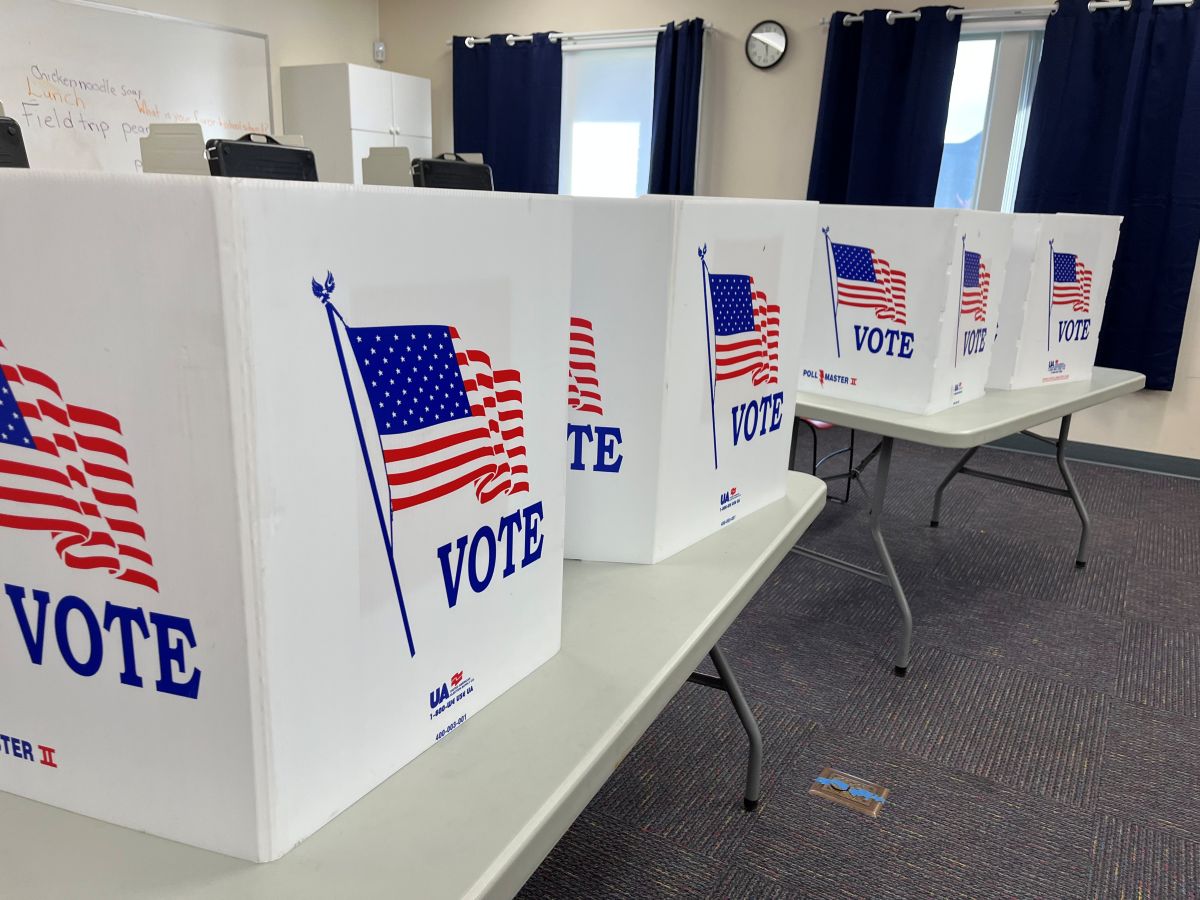How Far Can You Get In GA Elections With No ID But A Utility Bill?
Federal law mandates that individuals registering to vote must have their identification numbers verified against state motor vehicle or Social Security records. In Georgia, residents without a driver’s license or Social Security number may still vote by providing alternative low-security documents, such as a utility bill or bank statement. The Help America Vote Act requires states to conduct these checks, but simply possessing a driver’s license or Social Security number does not definitively indicate citizenship, as non-citizens can also obtain these IDs.
In case a prospective voter does not have either form of ID, they fall into a pending status and must provide proof of identity before voting. Election officials have stated that those who register without the required identification will have their applications flagged for additional verification. Acceptable forms of ID may include utility bills or bank statements, although critics argue that such documents do not confirm voter eligibility comprehensively.
Additionally, if a registered voter’s ID information does not match state records, they will also need to provide extra identification to vote. Georgia law does not necessitate documentary proof of citizenship for registration; however, discrepancies in citizenship information can lead to additional scrutiny.
Georgia’s voter registration process allows for various forms of identification, which, while accommodating for those lacking a driver’s license or Social Security number, raises concerns regarding the verification of voter eligibility and citizenship status.
Federal law requires potential voters registering to vote to have their ID numbers checked against state motor vehicle administration records or Social Security Administration records. But Georgians who possess neither a driver’s license nor Social Security number — or who submit one that returns a mismatch when compared to government databases — may still be able to vote with a low-security, non-photo document like a “utility bill” or “bank statement.”
Under the Help America Vote Act (HAVA), states are required to check information about prospective voters in federal elections against each individual’s information stored in the state’s Department of Motor Vehicles database. For individuals lacking a driver’s license, another system is designed to verify the voter’s information against Social Security records.
Theoretically, checking a person’s DMV records could include checking to see whether he indicated to the DMV that he is or is not a citizen. But notably, the possession of either a driver’s license or a Social Security number doesn’t necessarily confirm citizenship status since foreign nationals can obtain either. Georgia has an estimated 339,000 illegal aliens residing in the state, according to the Migration Policy Institute.
Registrants with No Driver’s License or SSN
I initially inquired with Georgia Secretary of State Brad Raffensperger’s office on July 17, asking, in part, what happens if an individual attempts to register in Georgia but “cannot provide either their driver’s license ID number or last four digits of their social security number?”
Spokesman for Raffensperger’s office Robert Sinners told me that a prospective voter would “be in an ID required pending status, so they’d have to provide proof prior to casting a ballot. The process is outlined in Title 21 pretty thoroughly.”
Title 21 states, in part, that individuals who lack both a Georgia driver’s license number, identification card number, or the last four digits of their Social Security number must “affirm this fact in the manner prescribed in the voter registration application upon penalty of law and such application shall be processed without regard to the procedures outlined in” the following section of the statute.
I followed up with Raffensperger’s team by asking whether the state has “additional mechanisms in place to check citizenship status aside from” Title 21.
On July 23, Sinners assured me that I was not being ignored, but that since the state may get “sued by the left over Georgia’s best-in-the-nation identity and citizenship checks, we have to get anything cleared by legal before releasing it to the media.”
I asked for a timeline for a response from legal on both July 25 and 26 and was told they expected an answer soon. Having yet to receive an answer despite repeated inquiries via both email and phone, I called county election officials to inquire about their protocols.
I first called the Carroll County Board of Elections and Registration, where I spoke with Election Administration Manager Will Hobson. He explained that a voter who registered by mail but did not provide either a Social Security number or driver’s license identification number would be registered to vote with a note on his profile that he is an IDR (ID required) voter.
A Georgia poll worker manual reviewed by The Federalist defines IDR voters as those “who registered for [the] first time by mail but did not provide required identification when appearing to vote.”
“What the code says is that they’re allowed to provide another form of identification … that’s for the residency status,” Hobson told me. “They’re also supposed to provide a form of government-issued photo ID.”
But the manual says that “these voters can provide additional forms to provide proof of ID.” Those “additional forms” as listed in the manual include documents like utility bills, bank statements, or paychecks. Effingham County has a bulletin posted to its county website explaining what appears to be the same procedure.
Director of Cobb County Elections and Voter Registration Tate Fall said that individuals who register to vote but fail to provide either their driver’s license identification numbers or the last four digits of their Social Security numbers would have their applications flagged in the system so officials would know they must provide “additional identification” to vote.
(Additionally, for any voter, the voter ID law Georgia passed in 2021 requires applicants for absentee ballots to provide their driver’s license number, or — if they don’t have one — “a copy of a current utility bill, bank statement, government check, paycheck, or other government document that shows the name and address of such elector.”)
Registrants Whose Provided ID Number Returns a Mismatch
As for individuals who provided a driver’s license number or Social Security number, if that ID number, their name, or their date of birth fails to match state or Social Security records, Title 21 permits them to “nevertheless be registered to vote” but requires such a voter “to produce proof of his or her identity … at or before the time that such applicant requests a ballot for the first time in any federal, state, or local election.”
According to the statute, such “proof” includes a “utility bill” or “bank statement,” among other options.
But utility bills, among other listed forms of acceptable documents, are considerably lower-tech than DMV or Social Security records. Furthermore, while these documents might confirm a person’s residency, they do not confirm details about him (felon status, citizenship, etc.) that are required to determine whether he is legally eligible to vote.
Hobson confirmed that individuals who submit a driver’s license identification number, Social Security number, or a state identification card that does not match any state records would be put in pending status until they brought an additional form of identification to vote.
“Also there is an oath on the registration form that requires them to check whether or not they are a citizen which is legally binding. So it’s essentially an affidavit,” Hobson said.
According to a 2018 lawsuit filed by a cohort of leftist groups against Gov. Brian Kemp, under a bill passed in 2017, county registrars must “enter information from a voter registration form into Georgia’s statewide voter registration system known as ‘Enet.’ … If the information entered into ‘Enet’ does not exactly match the applicant’s identity data on file with [Georgia Department of Driver’s Services] or [Social Security Administration], the application is placed in ‘pending’ status,” at which point the voter has 26 months to resolve the discrepancy.
This explanation appears to corroborate Hobson’s explanation that a voter whose information is unable to be matched to data on file by the state has his voter registration application put in “pending” status until he shows a document such as a utility bill or bank statement.
The suit also says the Georgia Department of Driver Services may “flag the applicant as a potential non-citizen” when the voter’s registration is checked against DDS records.
Georgia does not require voters to submit documentary proof of citizenship to register to vote, but a “Frequently Asked Questions” section on the secretary of state’s website suggests some would-be voters may receive a “notice that my voter application is pending because my citizenship information didn’t match the records at the Department of Driver Services.” The answer on the webpage links to another page listing “acceptable documents for proof of citizenship.” That page says if the listed documentation “cannot be obtained” then “documentation may be provided by a written affidavit, signed under penalty of perjury, from two citizens … establishing the person in question’s citizenship status.” The prospective voter “or another knowledgeable individual must also submit an affidavit stating why the documents are not available.”
The poll worker manual says “If an elector is marked on the electors list as a potential non-citizen and the voter does not have a proof of citizenship document with them, a provisional ballot should be issued.”
I asked Raffensperger’s office via email the following questions but received no response:
What does it take for a voter to receive such a notice? Title 21 says a person whose name, [driver’s license number], [Social Security Number] or [Date of Birth] doesn’t match DMV records or [Social Security Administration] records has to provide a utility bill (or another listed form of identity). So what has to be wrong with a person’s application to trigger the stricter requirement that he submit proof of citizenship?
Will voters who fail to provide one of these documents proving citizenship then have their registration rejected?
How many notices has the GASOS sent out this year [regarding]: unmatched citizenship verification?
For voters who provide neither their SSN, driver’s license ID, or GA state ID, Title 21 states so long as they provide proof of identity, like a utility bill, they can register to vote/vote. Can you confirm if that is an accurate understanding of Title 21?
Is this understanding correct? For voters who provide one of the aforementioned forms of ID but there is no match found in the system, they will be put in IDR status (ID required). If they show something like a utility bill, they can cast a normal ballot. If they can’t, they can cast a provisional ballot with the opportunity to return with the required document within three days. And if they fail to provide a utility bill or other document within three days, their provision ballot will not be counted.
The Secretary of State’s office again ignored my inquiry.
Brianna Lyman is an elections correspondent at The Federalist. Brianna graduated from Fordham University with a degree in International Political Economy. Her work has been featured on Newsmax, Fox News, Fox Business and RealClearPolitics. Follow Brianna on X: @briannalyman2
" Conservative News Daily does not always share or support the views and opinions expressed here; they are just those of the writer."





Now loading...